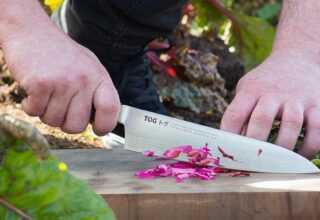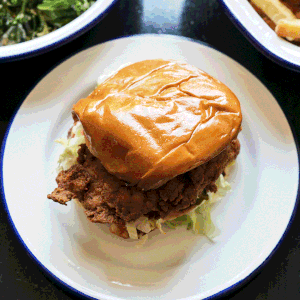
Want to know the best way to clean and store your kitchen knives?
A sharp and well-maintained knife is the single most essential tool in any chef’s kitchen. Every dish starts with a good knife, which makes the cooking process a lot easier. In addition, the cuts you make can affect the texture and flavor of the final dish.
Well-maintained knives also ensure your safety in the kitchen. Some people prefer cooking with dull blades. However, the chances of slipping off the food and cutting yourself are higher.
Do you want to ensure the best care for your kitchen tools? This article covers everything you need to know about proper knife care. Read on to discover some great kitchen tips about caring for your knives.
Wash Your Knives by Hand
The best way to clean your knives after use is to wash them by hand. After cutting up ingredients, run the blade under tap water and rub it with your fingers. Remember to keep the sharp end of the blade pointed away from you.
With a sponge or a dishcloth, wipe the knife in an outward motion away from your body. If you’re handling an especially sharp knife, lay it on the countertop. Wipe each side to reduce the chances of cutting yourself.
This also helps you see the entire surface of the blade, so you can always keep an eye on the sharp end.
Beware of Putting Knives in the Dishwasher
It’s good practice never to put your knives in the dishwasher. Dishwashing your kitchen tools may seem more convenient. However, the combination of high heat and harsh detergent can damage your blades.
Jostling in the dishwasher with other cooking tools can nick the knife at the edge. This exposes the metal underneath, which can lead to premature rusting. Even if your knife says it’s dishwasher safe, make it a habit to wash it by hand.
It also helps you get into the knife’s nooks and crannies, particularly where the blade meets the handle. This part of the knife is prone to food particles and debris. Thus, handwashing with mild soap and a cloth or sponge is the best way to clean your utensils.
If you insist on dishwashing your knives, ensure to rinse their blades first. Be careful not to let it come in contact with other metal items in the washing basket. Doing this helps you avoid damaging your blades with other cutlery or utensils.
It also helps to choose the right detergent in your dishwashing machine. Excess or abrasive detergent can stain your blade. After washing, leave your dishwasher open for a few minutes.
Are you looking to buy kitchen tools of the highest quality? Check out this link to discover the best chef knives for your kitchen.
Soak Knives With Stubborn Debris
It’s always best to wash your blades immediately after using them. If you happen to leave food particles or debris to dry on the blade, soak it first in shallow water. Leave it for a minute or two, then wash as normal.
Allowing your blade to soak for longer than a few minutes could make it more prone to rusting. This can also lead to your handle loosening or warping. Soaking your blades first prevents you from having to scrub away excess food debris.
Doing so can damage and nick your blade, leading it to rust. Remember to use the soft side of the sponge to keep your knives looking clean and flawless.
How to Dry Your Knives
Have you noticed any limescale spots or stains on your knife? This is often due to air-drying your knives. Usually, it’s fine to let your knives air dry on a dish rack.
However, if you want to keep your knives in good condition, dry them with a cloth instead. You can opt for a linen or cloth towel. Ensure that the towel is clean and free of debris to avoid scratching your blade.
Caring for Carbon Steel Knives
Many professional chefs use carbon steel knives in their kitchens. Carbon steel is harder than stainless steel and much easier to sharpen.
There is only one downside. Carbon steel knives are more fragile than your usual kitchen knives.
If you have a carbon steel knife in your inventory, it’s crucial to give it special care. Carbon steel is more reactive to products with high acidity. When cutting ingredients like tomatoes, citrus, and onions, wipe the knife immediately after.
You may also rinse it under tap water. If you neglect to do this, you allow the acid to corrode and damage the steel.
If you own a carbon steel knife, we recommend oiling it after washing and drying. Use a neutral, food-safe oil to protect the blade. A great example of this is camellia oil, which protects the steel from moisture and other acids.
Camellia oil has no flavor or smell, and it will not cause build-up on your knife. Use only a pea-sized amount and distribute it evenly on the edge. Wipe off excess oil before storing.
Use a Cutting Board
Even the best chef knives with the strongest material can have damage-prone edges. Using knives on objects that aren’t designed to cut can harm your knife’s edge. This includes things like a metal countertop and a ceramic plate.
When cutting ingredients, always use a wooden cutting board. Use the blunt edge of the knife when transferring ingredients from the cutting board. You can also use your hands.
How to Store Your Knives
Proper knife storage is also an essential part of caring for your kitchen tools. When you buy kitchen tools, don’t forget to buy a storage container for your knives. When storing your knives in a drawer, don’t leave them unprotected.
Use a knife block to ensure the blades won’t rub against each other. This also helps you keep your knives sharp. You can also use a magnetic knife holder strip or a leather roll.
Caring for Your Knives and Other Kitchen Tools
Now you know the proper way to clean and store your kitchen tools. Use this guide to keep your knives sharp and pristine and perfect your cooking processes.
Are you looking for more kitchen tips and tricks? Check out our other blog posts to discover some great recipes and other cooking tips.

























